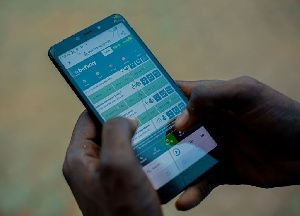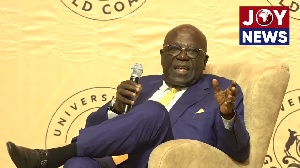Business News of Thursday, 3 April 2025
Source: www.ghanawebbers.com
Challenges posed by unregulated gambling activities in Ghana - Ghana Business News
In recent years, Ghana has become a leading market for sports betting in Africa. In 2024, the participation rate reached 41.7%. The gambling industry is now under intense scrutiny. It is regulated by Ghana's Gaming Commission and includes 25 licensed sports betting operators. There are also 12 online casinos and 24 physical casinos.
Online casinos in Ghana are highly regulated. This ensures they operate within strict legal frameworks to protect consumers and operators. However, unregulated gambling activities remain a significant issue in the country.
Unregulated gambling has serious economic impacts. Unlicensed operators use technologies like VPNs and cryptocurrencies to bypass local laws. This undermines the integrity of the gambling industry and deprives the government of tax revenue needed for development. The Ghana Association of Sports Betting Operators (GHASBO) warns about tax losses from "black sites," which operate outside legal boundaries.
To combat these issues, the Gaming Commission has enforced zoning laws. These laws prevent betting operators from setting up near schools or religious institutions. Violators face severe penalties to protect vulnerable populations and maintain social order. Additionally, the Commission has blocked access to 11 unauthorized gaming websites with help from the National Communications Authority.
The social consequences of unregulated gambling are alarming as well. Research shows that one in five young people aged 16 to 25 exhibit problem gambling behaviors. These issues often relate to financial instability and mental health crises. Increased mobile internet access makes it easier for youth to access gambling platforms, raising addiction rates.
Transnational gambling companies target young people through aggressive marketing strategies and sports sponsorships. Despite calls for responsible gaming frameworks, Ghana lacks strong regulations and public awareness campaigns on this issue. Many young Ghanaians remain vulnerable to gambling addiction without adequate support systems.
There is a growing recognition of the need for collaboration between regulators and industry operators to address these challenges. Workshops like the Betway Regulatory Compliance Workshop highlight joint efforts against illicit activities while promoting responsible gaming practices.
The Ghanaian government plans to abolish the 10% tax on betting winnings soon. This initiative aims to encourage player participation and support licensed operators while fostering industry growth. However, vigilance against unlicensed entities remains crucial for maintaining stability in the sector.
Ghana must develop comprehensive strategies addressing both economic and social dimensions of unregulated gambling challenges. Enhancing regulatory frameworks will help curb tax evasion while securing revenue for national development.
Public awareness campaigns are urgently needed to educate youth about gambling risks. Mental health support systems should assist individuals struggling with addiction as well.
Partnerships with educational institutions can strengthen these efforts further, creating supportive networks for those affected by gambling-related issues.
In conclusion, while Ghana's gambling industry offers lucrative opportunities, it faces significant challenges from unregulated activities. Comprehensive regulatory measures and collaborative efforts are essential for safeguarding economic interests and social well-being in this sector.











